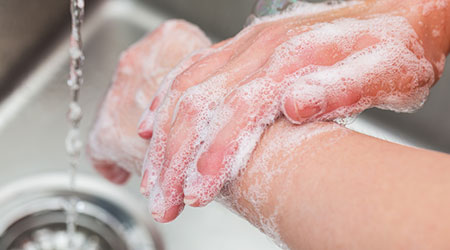Ensuring that healthcare workers always clean their hands before interacting with a patient is key to infection control, according to an article on the Scientific American website.
Some healthcare facilities are giving healthcare workers tags that provide their locations, and are attaching similar tags to sanitizer and soap dispenser levers that show whether they’re being used.
A hospital in Denver reported that its baseline hand hygiene adherence rates jumped from about 40 percent to more than 70 percent after using such a system.
One study looked at another way real-time location systems have been implemented to ensure clean hands. Rather than tracking all personnel, a hospital tracked hand hygiene auditors as they moved about the facility. The study found that when the dispensers were within view of the auditors, healthcare workers were much more likely to use them.

 The High Cost of Healthcare Violence
The High Cost of Healthcare Violence EVS Teams Can Improve Patient Experience in Emergency Departments
EVS Teams Can Improve Patient Experience in Emergency Departments East Tennessee Children's Hospital to Become Dolly Parton Children's Hospital
East Tennessee Children's Hospital to Become Dolly Parton Children's Hospital The Future of the Global Hospital Hygiene Market
The Future of the Global Hospital Hygiene Market Rethinking Fire Safety Inspections
Rethinking Fire Safety Inspections